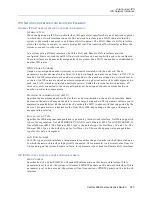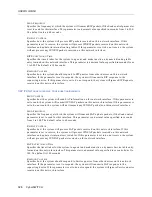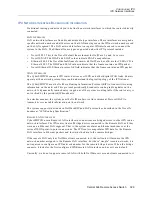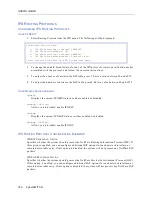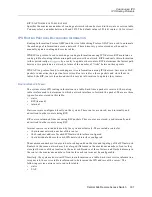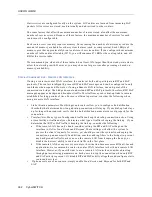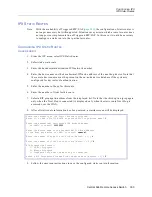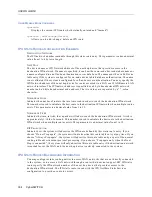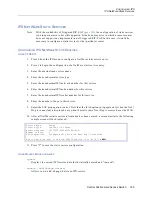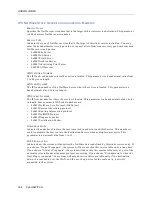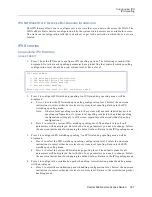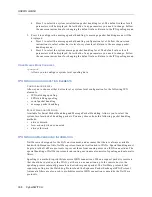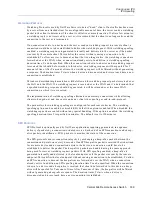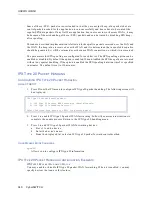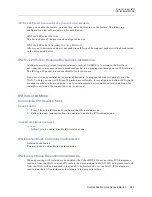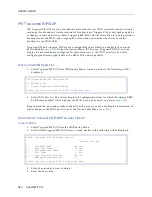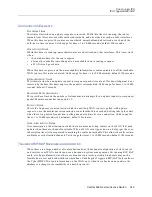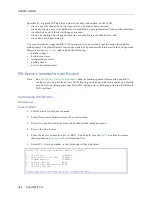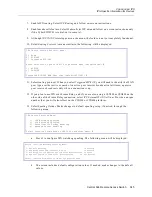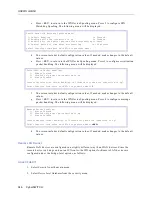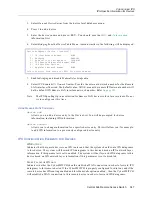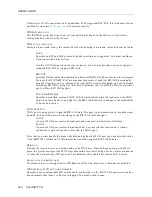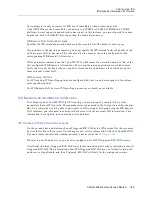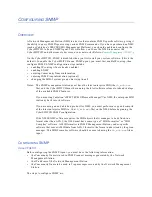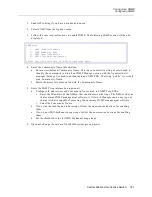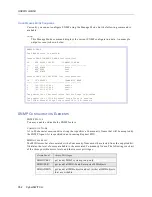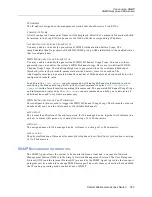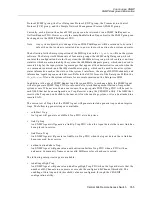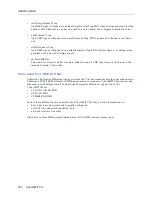
Central Site Remote Access Switch 341
C
ONFIGURING
IPX
IPX Isolated Mode
IPX T
YPE
20 P
ACKET
H
ANDLING
D
EVICE
C
ONFIGURATION
E
LEMENTS
Once you enable the feature, you can then enter devices to use the feature. The following
configuration elements are entered for each device.
IPX T
YPE
20 P
ACKET
D
EVICES
The device name of the previously configured device.
IPX T
YPE
20 P
ACKET
F
ORWARD
C
ONTROL
M
ETHOD
Allows you to determine under what conditions IPX type 20 broadcast packets will be broadcasted
to the designated device.
IPX T
YPE
20 P
ACKET
H
ANDLING
B
ACKGROUND
I
NFORMATION
In order for certain protocol implementations, such as NetBIOS, to function in the NetWare
environment, routes must allow a broadcast packet to be propagated throughout an IPX internet.
The IPX type 20 packet is used specifically for this purpose.
However, it is not practical, nor sometimes desirable, to propagate broadcast packets over the
WAN. To help you control IPX type 20 packets more flexibly, this configuration allows IPX type 20
broadcast packets to be propagated to only certain remote devices under certain conditions (for
example, only when the connection is up, or always).
IPX I
SOLATED
M
ODE
C
ONFIGURING
IPX I
SOLATED
M
ODE
U
SING
CFGEDIT
1.
Press 9 from the IPX menu to configure the IPX isolated mode.
2.
Follow the onscreen instructions to enable or disable the IPX isolated mode.
U
SING
M
ANAGE
M
ODE
C
OMMANDS
ipxiso
Allows you to enable/disable IPX isolated mode.
IPX I
SOLATED
M
ODE
C
ONFIGURATION
E
LEMENTS
Isolated Mode Status
You may enable or disable the isolated mode.
IPX I
SOLATED
M
ODE
B
ACKGROUND
I
NFORMATION
When operating with isolated mode enabled, the CyberSWITCH does not relay IPX datagrams
received from the WAN to other IPX routers/hosts located on the WAN. IPX datagrams received
from the WAN will be discarded if they need to be forwarded over the WAN. IPX datagrams
received on the LAN interface are forwarded to the proper interface.

